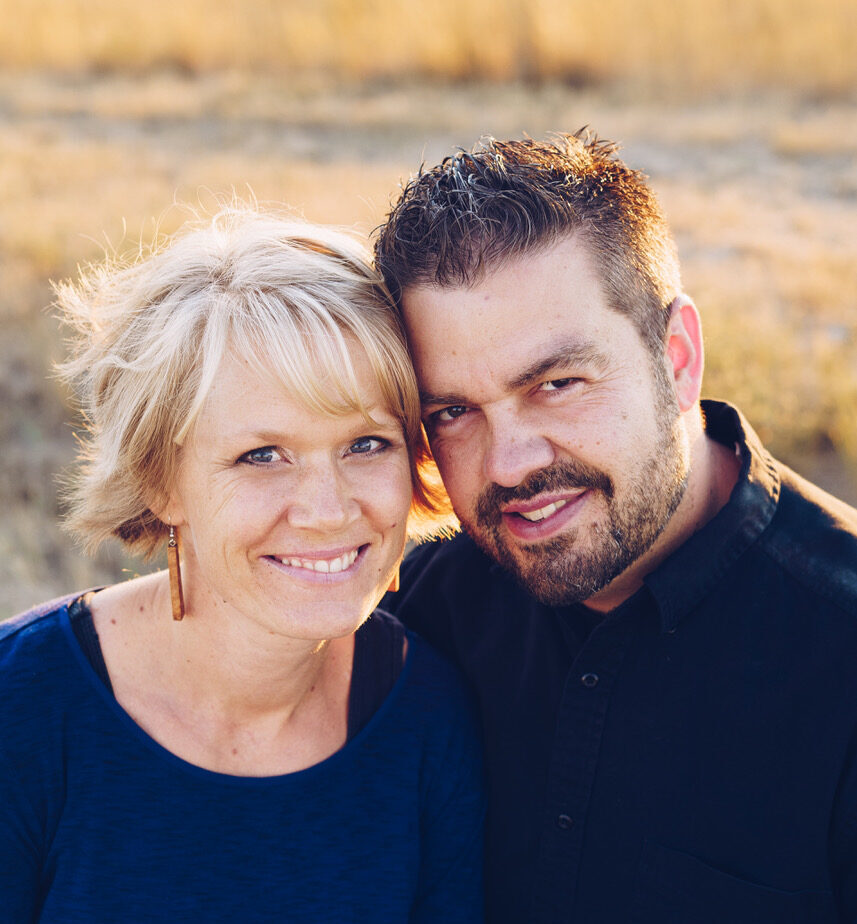
You’re wrong! (So am I.) Now what?
By Jesse Jost
Have you ever stopped to think about how many wrong beliefs you might currently have?
We can be wrong in our judgement of other people: Some have worse character than we assess, other people have more virtue than meets the eye.
We can be faulty in our memories of the past, and very wrong in our predictions of the future.
We can be in error in our views of God and our interpretations of the Bible.
We can have wrong beliefs about what will make us happy and what is truly meaningful.
We can be wrong in our interpretation of causation, with many theories about how the world works that may be way off.
We can be wrong in our understanding of health and nutrition and medicine.
The crazy thing is that while we can fully accept that other people have their heads full of wrong beliefs, it is almost impossible to accept that we are in error!
It Feels so Right!
Our brains, which control our thoughts and beliefs, also control what emotions and sensations we experience.
So not only does our brain help choose our beliefs, it also creates a strong feeling of certitude – a feeling of being correct and infallible in all of our beliefs.
In fact, we are unequipped to even feel the sensation of being wrong! We can change our minds and accept that what we used to believe was wrong, but that is always accompanied by a sensation that NOW we are right.
So the state of any human in any given moment is that we are walking around with dozens of false beliefs accompanied by a strong feeling that everything we believe is true! Quite the combination, isn’t it?
How highly does the Bible esteem our ability to be correct in our beliefs and understanding? Not very! We are warned to not lean on our own understanding, we are told our hearts are deceitful, we are described as gullible and those prone to suppress the truth. We have seared consciences and deceitful desires. On top of that, we live in a world that is constantly feeding us lies. It says that there is a way that seems right to a man, but it ends in death.
No wonder then that we are warned to not be wise in our own eyes!
Two Fatal Extremes
There are two extremes on the spectrum of awareness of our how error-prone we can be:
On one side is a total inability to actually believe that we could be wrong. The consequences of this extreme makes a person arrogant, unwilling to listen or concede, and also judgmental and dogmatic. Hardly the type of person you want in your church or bridge club.
But on the other end of the spectrum is the person who is too aware of how error-prone the brain is. They become filled with doubt and questions. They can be paralyzed with fear and uncertainty. They are unwilling to commit to anything because of fear of being wrong, and can end up completely neutralized and ineffective.
The Cure
Scripture gives us a cure for both fatal extremes: an awareness of God. Proverbs tells us that “The fear of the Lord is the beginning of wisdom. Knowledge of the Holy One is understanding. “
In the Bible every time a person has an encounter with God, there is always an overwhelming realization that what they thought they knew about God was incomplete. They are made aware of just how wrong they had been.
But this awareness that they had been in error is replaced, not with paralyzing doubt, but a quiet confidence and boldness.
While they are made aware of how much they don’t know, there is a renewed confidence in the One who knows all things.
There is a new humility about how error-prone they could be, but also more clarity about what actions they need to take.
I believe it is wise for us to review regularly how often we have been wrong and how easily we are deceived, and remind ourselves that even though we can’t feel it, we need to be aware that many of our ideas could be faulty.
We need to always be conscious of that fact that we know less than 1% of all knowledge, and there could be information in the 99% we don’t know that will change our minds.
The spiritual benefits of this exercise are many: We will be less likely to rely on our own understanding and more quick to acknowledge God in all our ways. We will be more willing to listen to others and consider their perspective. We will be more diligent to be in the Word and test all ideas by its infallible standard.
While we will have less of the sensations of certitude, I believe we will be far more likely to end up with beliefs closer to the truth, than the one who never questions if they are wrong.
Conclusion:
Shared beliefs are so bonding in our relationships. But firmly held beliefs that are at odds with what others believe are a painful wedge in relationships.
Our beliefs are so dependent on the information we have received. If you have seen different information than I have, then you will almost be guaranteed to have different beliefs than me.
Social media has been an unbelievable fact- and information-generator. All varieties of contradictory and conflicting information come across our feed with the appearance of truth and validity. They are each presented in a way that this is obviously reality, “how could any intelligent person not accept this?”
But so much of it is twisted and distorted and incomplete. Much has a grain of truth, but that only adds to the seeming correctness of the misleading claims.
I will not get into what claims I believe are true and which ones are in error. I am just as prone to being wrong as the next guy.
But regardless of what you believe as truth and what you reject as propaganda, I think we all need to be reminded of just how wrong we can be.
This awareness is not to cripple us or fill us with uncertainty, but to cast our confidence on Jesus. We need to acknowledge God in every area of our beliefs and beg Him to show us our errors.
But even more, we need to have a fresh revelation of God! The guidance of His Holy Spirit through His infallible and unchanging Word is our only hope of finding the truth.
We need to hold our beliefs and interpretations loosely, and not put our trust in our abilities of discernment, but in the Living God who will hold us and lead us into truth if we humbly rely on Him and not our own ability to reason.
All of this should bring a powerful sense of hope and comfort to believers. Our confidence is not that we are right in all things, but that even when we are wrong, our God sees all things and knows all things. He is a mighty Saviour who loves to rescue and protect those who cling to Him. He is never deceived or tricked. He can be trusted completely
